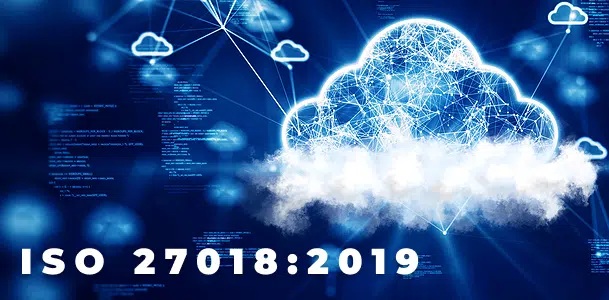south africa
ISO CERTIFICATION IN SOUTH AFRICA
ISO (International Organization for Standardization) is an independent entity dedicated to formulating standards that ensure the quality, safety, and efficiency of products or services offered by businesses and organizations. Obtaining ISO certification in South Africa is essential to verifying that businesses or organizations comply with the required ISO standards, ensuring the delivery of effective and efficient products or services.
South Africa, situated at the southern tip of the African continent, is known for its diverse landscapes and cultural heritage. ISO certification is a prerequisite in South Africa, emphasizing the commitment to meeting international standards in various industries. South Africa’s large and diverse terrain, which includes its wide plains, mountain ranges, and coastal areas, adds to the nation’s economic importance. To guarantee that they meet acknowledged standards for quality and operational effectiveness, companies in industries including mining, manufacturing, services, and agriculture in South Africa must obtain ISO certification. South Africa is a major player in the world market thanks to its abundance of natural resources, which include minerals like gold, platinum, and diamonds. In South Africa, ISO certification plays a crucial role in industries like mining, where following global guidelines is necessary for ethical and sustainable resource extraction.
Investments in research and development demonstrate the country’s dedication to innovation and technical improvement. Space exploration, aviation research, and technical innovation are areas that South Africa focuses a lot of attention on; thus, obtaining ISO certification is essential to ensuring quality and dependability in these areas. South Africa is renowned for its vibrant communities and diversity of cultures, all of which contribute to a dynamic and changing nation. In South Africa, ISO certification highlights a dedication to providing high-quality services and ensuring customer satisfaction, and it has a significant impact on industries like tourism and hospitality.
ISO certification is an essential procedure for companies and organizations in South Africa, demonstrating their commitment to maintaining global standards in a variety of industries within this historically and economically rich country.
WHY ISO CERTIFICATION IN SOUTH AFRICA?
For South African firms looking to maximize operational efficiency, guarantee quality, and create confidence, obtaining ISO certification is essential. The ISO certification demonstrates the organization’s steadfast commitment to maintaining strict standards across various industries in South Africa. Particularly, the importance of ISO 9001 certification emerges to the fore, highlighting quality control and enabling South African businesses to provide dependable, client-focused goods and services.
Equally important is ISO 14001’s function in environmental management, especially in a nation like South Africa that is attempting to balance rapid industrial growth with sustainable development. The importance of ISO certification, particularly ISO 27001, in protecting sensitive data in the ever-changing digital ecosystem is growing as South Africa continues its digital transformation.
These certifications are essential in the diversified South African market since they increase client confidence and give companies a competitive edge abroad. ISO accreditation indicates a commitment to strict standards, improving product dependability, and reducing waste. It also simplifies procedures, which promotes higher productivity and lower expenses.
There are many ISO certification bodies in South Africa that may help firms successfully navigate the certification process by providing certification services, advice, and exams. In essence, ISO certification in South Africa empowers companies to build strong frameworks, follow international best practices, and actively promote excellence, sustainability, and security to actively contribute to the development of the nation.
UNDERSTANDING ISO CERTIFICATION IN SOUTH AFRICA
Obtaining ISO 9001 certification in South Africa is a definite indication of a business’s commitment to providing dependable and superior goods and services. The ISO 14001 standard is becoming more and more well-known as South Africa’s industrial landscape changes. It stresses sustainable growth and tackles environmental issues. Ensuring the security of confidential information is compliant with ISO 27001, which is an essential consideration given South Africa’s current digital revolution. The diverse South African market benefits greatly from ISO certification, which raises consumer trust and makes it possible for
Related Links
SOC 2 in South Africa
ISO 27701 in South Africa
GDPR in South Africa
ISO 27018 in South Africa
HIPAA in South Africa
CCPA in South Africa
PIPEDA in South Africa
ISO 17025 in South Africa
ISO 13485 in South Africa
CE Mark in South Africa
GDP in South Africa
GLP in South Africa
ISO 9001 in South Africa
ISO 14001 in South Africa
ISO 45001 in South Africa
ISO 22000 in South Africa
HACCP in South Africa
ISO 22301 in South Africa
ISO 21001 in South Africa
ISO 41001 in South Africa
ISO 20000-1 in South Africa
businesses to compete internationally. Beyond demonstrating compliance with strict standards, ISO certification improves product reliability through process simplification, waste reduction, and inefficiency elimination. Companies in South Africa can create strong frameworks that are compliant with international best practices thanks to ISO certification. Companies that put quality, sustainability, and security first not only improve their own status but also help South Africa’s standing abroad. Through ISO certification, the International Organization for Standardization (ISO) formally recognizes adherence to predetermined standards in a business’s management system, practices, products, or services. The ISO, an internationally renowned and autonomous organization, creates and distributes standards to guarantee effectiveness, safety, and quality in a range of industries. The widespread use of ISO standards makes it easier for South African enterprises to access international markets. Businesses that display their dedication to quality and ongoing development by obtaining ISO certification frequently obtain a competitive advantage. Customer requirements are often highlighted in ISO standards, which improve retention and satisfaction. An important consideration for South African suppliers involved in global supply chains is ISO certification. Continuous improvement is a critical component of ISO certification, helping South African businesses stay competitive and optimize their operations. In the end, ISO certification enhances a company’s standing by proving compliance with global quality standards and inspiring trust in customers and partners.

THE ESSENTIAL STEPS OF THE ISO CERTIFICATION PROCESS IN SOUTH AFRICA INCLUDE THE FOLLOWING:
Preparation and Awareness: Start by learning every detail there is to know about the particular ISO standard that applies to your industry and company objectives. Learn about the benefits, requirements, and implementation processes related to the standard.
Planning: Create a thorough plan that outlines the steps required to align your processes with the ISO standard. Create an implementation timeline and designate roles based on it.
Documentation: Produce or update any necessary paperwork, including policies, procedures, work instructions, and records, to make sure they comply with the ISO standard.
Implementation: Integrate your organization’s documented processes and procedures smoothly throughout the structure. To guarantee a successful implementation, continuously monitor the implementation and make any changes as needed.
Internal Audit: Perform an internal audit to identify any non-conformities and evaluate the effectiveness of the implemented processes. Address these issues and make the necessary adjustments as required.
Management Review: Conduct a management review to assess the progress, effectiveness, and relevance of the ISO management system implementation. Determine whether any changes or upgrades are necessary.
Certification Body Selection: Choose a reputable certifying body to conduct the external assessment. The certifying body will thoroughly review your policies, practices, and execution to determine your readiness for certification.
Stage 1 Audit (Document Review): The certification organization’s initial review of your paperwork and procedures confirms that they meet the standards of the ISO standard.
Stage 2 Audit (On-Site Audit): The certification authority conducts an on-site audit to confirm your ISO management system’s implementation and assess how well your processes adhere to standard criteria.
Certification Decision: The certification organization decides whether to give certification based on the audit findings. If your company meets the ISO’s criteria, it will receive an ISO certificate.
Surveillance Audits: To ensure continuous compliance with the ISO standard, the certifying authority conducts frequent surveillance audits. Typically, these audits are conducted once a year.
Throughout the procedure, careful adherence to the certification organization’s standards and ongoing communication with them are critical.
POPULAR ISO STANDARDS IN SOUTH AFRICA
Numerous ISO standards have been widely embraced across various industries in South Africa, playing a pivotal role in elevating standards for efficiency, safety, and quality. Notably, ISO 9001:2015 stands out for its emphasis on implementing quality management systems to ensure the consistent delivery of reliable goods and services. Aligned with South Africa’s commitment to sustainability, ISO 14001:2015 addresses environmental management systems, promoting ethical practices amid the nation’s ongoing industrial expansion.
ISO 27001:2013 has grown in importance as a data security standard in South Africa’s ongoing digital growth. This standard supports South Africa’s digital security initiatives, assisting businesses in protecting sensitive data. The automotive industry relies on ISO 26262 to assure the functional safety of electrical and electronic systems, which contributes to increased road safety.
ISO 45001:2018 places a strong emphasis on occupational health and safety, which is well aligned with South Africa’s commitment to the well-being of its workers. ISO 22000:2018 focuses on food safety management systems in the food business, assuring consumer protection. ISO 50001:2018 focuses on energy management, which aligns with South Africa’s commitment to sustainable energy policies. These ISO standards align with South Africa’s technological improvements, regulatory compliance, and development aspirations. They play an important role in promoting industry practices and ensuring international recognition for South African businesses.
BENEFITS OF ISO CERTIFICATION IN SOUTH AFRICA
Organizations in a variety of industries might benefit greatly from ISO certification in South Africa. The Worldwide Organization for Standardization (ISO) sets worldwide standards that businesses must follow in order to improve their overall efficiency, quality, and safety. Obtaining an ISO certification, such as ISO 14001 for environmental management or ISO 9001 for quality management, shows a dedication to best practices and enhances global reputation. Gaining this recognition can give you a competitive edge, better client satisfaction, and more access to the market. Furthermore, ISO certification promotes process simplification, ongoing improvement, and cost savings. Additionally, it encourages environmental responsibility, makes regulatory compliance easier, and may have a good effect on supply chain connections. In general, ISO certification promotes quality, trustworthiness, and sustainable business practices and is used as a strategic tool in South Africa.
- Global Recognition: The worldwide recognition of ISO certification creates opportunities for South African businesses, allowing them to engage in international trade and expand their market presence overseas. This acknowledgement provides South African companies with a substantial competitive advantage, empowering them to conduct business authentically and trustworthily in foreign markets.
- Enhanced Credibility: It enhances the credibility and trust of clients, partners, and investors both domestically and internationally.
- Competitive Advantage: Organizations possessing ISO certification outperform their competitors by demonstrating their commitment to excellence and quality.
- Operational Efficiency: Process improvements contribute to higher overall operational effectiveness.
- Supply Chain Integration: ISO certification is required for many worldwide supply chains, allowing participants to collaborate with overseas partners.
- Market Standing: ISO certification improves a company’s market reputation, attracts more customers, and opens up new business options.
- Legal and Regulatory Compliance: ISO certification improves compliance with both national and international laws.
- Investor Confidence: Demonstrating a commitment to best practices increases investor confidence.
ISO certification in South Africa enables businesses to excel in a competitive marketplace, build trust in global markets, adhere to ethical and sustainable business practices, and constantly improve operations for long-term success.
ISO CERTIFICATION BODIES IN SOUTH AFRICA
The South African National Accreditation System (SANAS) is South Africa’s accrediting agency for certification bodies. Numerous certifying bodies in South Africa are permitted to offer ISO certification under the auspices of SANAS. These authorized firms conduct audits of enterprises to ensure compliance with specific ISO standards. Let’s look at some of the leading ISO certification bodies in South Africa:
Wynleigh International Certification Services (Pty) Ltd: Wynleigh International Certification Services (Pty) Ltd. is a globally recognized provider of ISO certification services, specializing in audits, evaluations, and validations to enhance business efficiency. With a focus on the Southern African Development Community (SADC), they collaborate with diverse organizations, offering certifications including ISO 9001, ISO 14001, ISO 45001, and Excellence Through Stewardship. Additionally, the company provides a complimentary risk assurance service, elevating brand reputation through engagement and satisfaction surveys. It is crucial for organizations seeking certification to understand the certifying body’s specialization and accreditation scope. For the latest information, official sources and direct interaction with Wynleigh International Certification Services are recommended.
Certification and Training Services for Africa (Pty) Ltd: Certification and Training Services for Africa (Pty) Ltd., known as “Cert Africa,” is a South African company entirely owned by a black woman. The company specializes in providing accredited certification across various industry sectors. Their focus includes Quality Management Systems (ISO 9001:2015), Occupational Health and Safety Management Systems (OHSAS 18001:2007/ISO 45001:2018), and Environmental Management Systems (ISO 14001:2015). Cert Africa conducts audits for certification compliance, covering ISO 9001:2015, ISO 14001:2015, and ISO 45001 standards. Additionally, they offer services in legal compliance and training on management systems.
Industry Compliance and Certification Authority of South Africa (Pty) Ltd: The Industry Compliance and Certification Authority of South Africa (ICCASA) is a SANAS accredited Certification Body for Quality Management Systems (QMS), Environmental Management Systems (EMS), and Occupational Health and Safety Management Systems (OH&SMS). Our commitment lies in aiding South African industries to attain reputable management system certifications, ensuring competitiveness, productivity, and alignment with national and international standards. Serving as a strategic partner, ICCASA collaborates with industries through skills capacitation initiatives to enhance knowledge and skill development, fostering compliance with globally accepted standards and best practices.
Africert (Pty) Ltd: AfriCert delivers cutting-edge accredited certification services, internationally acknowledged across a diverse spectrum for small, medium, and large businesses. Our commitment extends to facilitating the attainment of reputable management system certifications, ensuring businesses’ competitiveness, productivity, and alignment with global standards. Functioning as a strategic partner, AfriCert collaborates with industries through skills capacitation initiatives, elevating knowledge and skill development. This collaborative approach fosters compliance with globally accepted standards and best practices. The services provided by AfriCert cater to businesses of varying sizes, promoting progressiveness, all while maintaining competitive rates to support and enhance the growth of our clients.
BSI group: BSI (British Standards Institution) is a leading business standards company, headquartered in London. With over 2,500 staff, 53% outside the UK, CEO Howard Kerr leads the organization, aiding clients in performance enhancement, risk reduction, and sustainable growth. Established in 1901, BSI is the world’s first national standards body, globally recognized for championing best practices. Originating widely used management system standards, it publishes over 2,500 annually, addressing diverse sectors. BSI collaborates globally, engaging over 65,000 clients in 150 countries and offering training, guidance, and compliance tools. Independently assessed and accredited by ANAB and 26 bodies, BSI’s influence extends to the International Organization for Standardization (ISO), ensuring global standards meet present and future needs. The iconic Kitemark® symbolizes BSI’s excellence, ranking among the UK’s most trusted brands.
INDUSTRIES THAT BENEFIT FROM ISO CERTIFICATION IN SOUTH AFRICA
Given the numerous benefits that ISO certification offers and its major impact on diverse industries across the country, many South African businesses have recognized its critical role in assuring success. These certificates are more than just status symbols; they represent a strong commitment to quality, security, and sustainability. ISO 9001 accreditation, for example, improves product quality and operational efficiency in the manufacturing sector, promoting a culture of continuous improvement that boosts customer satisfaction and gives a competitive advantage. Consumers see ISO accreditation as a sign of dependability.
ISO 27001 certification is essential in South Africa’s IT business since data becomes increasingly valuable in today’s world. This accreditation increases risk management and data security systems, allowing the sector to benefit from technology improvements while protecting sensitive data. Beyond commercial success, it is critical for establishing client trust in a variety of circumstances. Similarly, the ISO/TS 16949 standard, designed specifically for the automotive industry, strengthens South Africa’s position as a leading global manufacturer of high-quality cars, ensuring their durability and safety. The national healthcare system also benefits from the assurance of precision, legal compliance, and high standards.
These certifications have an impact beyond individual enterprises, promoting sustainable construction practices and furthering environmental building technologies. ISO consultants in South Africa help South African firms comply with ISO standards and guide them through the certification process. This commitment includes certifications that strengthen data security, privacy, and healthcare standards in South Africa, such as ISO 27001 Certification in South Africa, SOC 2 Certification in South Africa, GDPR Certification in South Africa, HIPAA Certification in South Africa, and PIPEDA certifications. Pursuing ISO certification in South Africa demonstrates a commitment not simply to economic success but also to broader societal and environmental well-being. The presence of ISO consultants in South Africa emphasizes the strategic direction required by firms to efficiently navigate the certification landscape.
FAQ
What benefits does ISO certification bring to businesses in South Africa?
ISO certification in South Africa offers advantages such as global recognition, enhanced credibility, competitive advantage, operational efficiency, supply chain integration, improved market standing, legal compliance, and increased investor confidence.
Why is ISO 9001 certification significant for South African organizations?
ISO 9001 certification in South Africa signifies a commitment to quality management, allowing businesses to deliver reliable and customer-focused goods and services.
What are the essential steps in the ISO certification process in South Africa?
The ISO certification process in South Africa involves preparation, planning, documentation, implementation, internal audit, management review, certification body selection, document review, on-site audit, certification decision, and surveillance audits.
Which ISO standards are widely embraced in South Africa, and why?
Various ISO standards, including ISO 9001:2015, ISO 14001:2015, ISO 27001:2013, ISO 26262, ISO 45001:2018, ISO 22000:2018, and ISO 50001:2018, are widely adopted in South Africa across different industries, contributing to efficiency, safety, and quality improvements.
What role does ISO certification play in South Africa's digital transformation?
ISO certification, particularly ISO 27001, plays a crucial role in South Africa’s digital transformation by ensuring the security of sensitive data in the evolving digital landscape.
HOW DOES THE NIST CYBERSECURITY FRAMEWORK FUNCTION, AND WHY IS IT IMPORTANT?
Emerging cyber threats make cybersecurity an essential consideration for organizations handling and managing data. In this regard, the NIST cybersecurity framework applies to improving your cybersecurity program. It is a set of guidelines that helps improve your...
AI Audit Guidelines and Best Practices: Applying AI Towards Its Full Potential
Artificial Intelligence is entering different industries, where it is used for customer handling, data management, and documentation processes. The interference of AI is increasing concerns regarding ethical practice and safety. Therefore, AI audits have become more...
AUDIT LOG: INFORMATION SECURITY BEST PRACTICES FOR BUSINESSES
An audit log is the best information security practice for organizations. This article elaborates on the operational process of audit logs and how companies utilize them for business growth. What is an audit log, and how does it work for organizations? For more...












